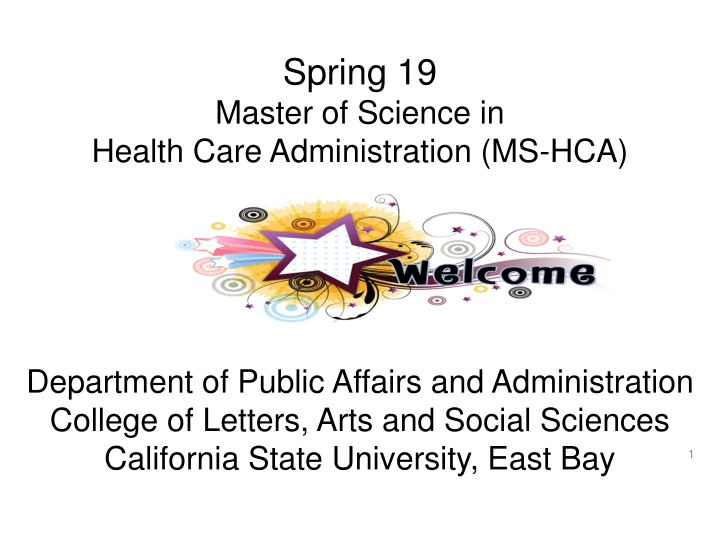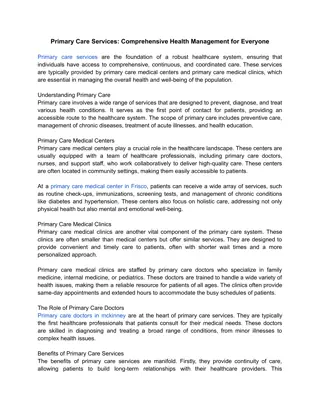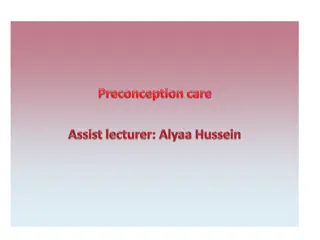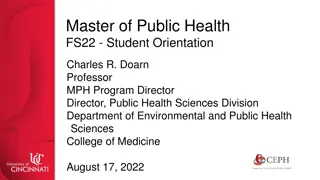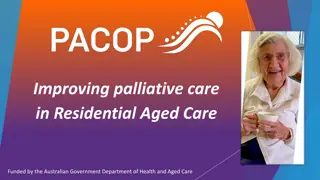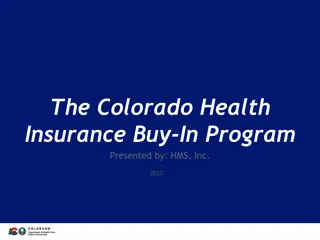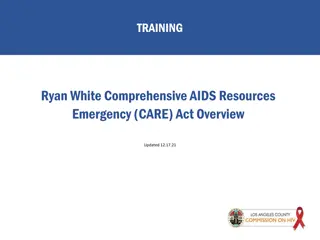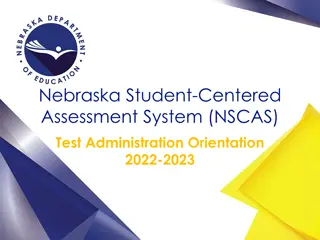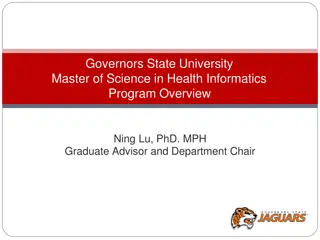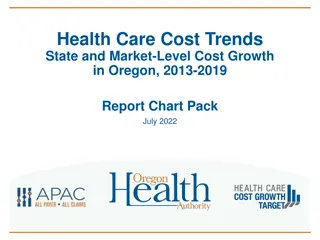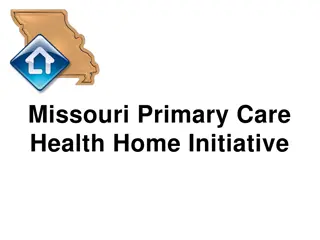Master of Science in Health Care Administration Program Overview
The Master of Science in Health Care Administration (MS-HCA) program at California State University, East Bay offers a comprehensive curriculum including courses in Health Care Management, Leadership, Quality Improvement, Technology, Financial Management, Legal Issues, and Program Development. To remain in good standing, students must maintain a 3.00 GPA and earn a grade of C or better in all courses. Meeting the University Writing Skills Requirement (UWSR) is essential for graduation. Spring 19 admission cohort students should file for Fall 20 graduation by March 1 to complete the program successfully.
Download Presentation

Please find below an Image/Link to download the presentation.
The content on the website is provided AS IS for your information and personal use only. It may not be sold, licensed, or shared on other websites without obtaining consent from the author.If you encounter any issues during the download, it is possible that the publisher has removed the file from their server.
You are allowed to download the files provided on this website for personal or commercial use, subject to the condition that they are used lawfully. All files are the property of their respective owners.
The content on the website is provided AS IS for your information and personal use only. It may not be sold, licensed, or shared on other websites without obtaining consent from the author.
E N D
Presentation Transcript
Spring 19 Master of Science in Health Care Administration (MS-HCA) Department of Public Affairs and Administration College of Letters, Arts and Social Sciences California State University, East Bay 1
MS-HCA Program Overview 8 Semester-Based Courses Course # and (Units) Course Title Evolution of the U.S. Health Care System, Health Disparities and Policy HCA 611 (4) Health Care Management, Leadership and Strategic Planning HCA 612 (4) Health Care Quality Improvement Tools and Methodologies HCA 621 (4) Health Care Technology and Informatics HCA 622 (4) Health Care Financial Management and Third-Party Reimbursement HCA 631 (4) Health Care Legal, Diversity and Ethical Issues HCA 641 (4) Health Care Program Development and Grant Writing HCA 642 (4) Capstone Project HCA 693 (6) 2
Schedule of Courses Spring 19 Fall 20 Spring 19 HCA 611 HCA 612 Fall 19 HCA 621 HCA 622 Spring 20 HCA 631 HCA 693 Fall 20 HCA 641 HCA 642 3
What Grades Must I Earn? In order to remain in good standing in the program, you must maintain an overall 3.00 GPA, which is a B average. In addition, you must earn a grade of C or better in all of your courses. Courses with grades of C- or lower must be repeated. As long as you have a GPA of 3.00 or higher and earn a grade of C or better in your courses, you will be in good standing. 4
University Writing Skills Requirement Students must meet the University Writing Skills Requirement (UWSR) in order to graduate. You will not be allowed to file for Fall 20 graduation if you do not meet the UWSR before March 1. Information regarding the UWSR can be found at: http://www20.csueastbay.edu/academic/colleges-and- departments/apgs/testing/uwsr/index.html Administered by the CSUEB Testing Office Contact information: https://adhayweb13.csueastbay.edu/academic/college s-and-departments/apgs/testing/contact/index.php 5
When Do I File To Graduate? If you follow the degree completion roadmap for the Spring 19 admission cohort, Fall 20 will be your last semester of enrollment. You will file for Fall 20 graduation in Spring 20. You will receive an email announcement from the University and the link to file for graduation will appear in your MyCSUEB when it is time to file for Fall 20 graduation. The deadline to file for Fall 20 is March 1. If you do not meet the UWSR before March 1, you will not be able to file for Fall 20 graduation. 6
Program Learning Outcomes The program learning outcomes, or PLOs, are the skill sets and knowledge base that we expect students to acquire by the end of the MS-HCA program. There are six PLOs, based on the competencies the Healthcare Leadership Alliance (HLA) believes all effective health care administrators and managers should have. The HLA is a consortium of professional health care administration associations. 7
The Six MS-HCA PLOs 1. Analyze and think critically about current and emerging issues in the health care system and the policy environment in which the system operates. 2. Communicate effectively with internal and external organizational stakeholders, both in written and oral form. 3. Create effective and creative approaches for fostering teamwork and encouraging others to align their priorities with organizational excellence. 4. Form collaborative relationships and interact appropriately with diverse client groups, workplace supervisors and colleagues, and other organizational stakeholders. 5. Align personal and organizational conduct with ethical, legal, and professional standards. 6. Apply business principles to the health care environment, including financial management, human resource management, organizational dynamics and governance, strategic planning, information management, risk management, and quality improvement. 8
PLO Essays and Self-Assessment As part of HCA 693, you will be required to write six five- page PLO essays in which you demonstrate your level of achievement with each of the six PLOs. In addition, you will perform a PLO self-assessment where you rate your level of success with each PLO. As you complete each course, you should think about how the course related to the PLOs and what skills and knowledge you acquired in the course that helped you achieve each PLO. If you reflect on and write about what you learn as you move through the program, by the time you enroll in HCA 693 many of your PLO essays will practically be written. 9
Is There A Thesis? You may receive an email from the CSU East Bay Graduate Programs Office with information about writing a thesis. In the MS-HCA program, we do not have the thesis as the capstone experience. The capstone experience is HCA 693, which has two components. PLO assessment Off-campus learning experience - 4 options: 200-hour internship, project, health care policy white paper, or course/certificate/license 10
When Do I Register for Courses in Future Semesters? Generally, you will enroll in courses for a future semester in the preceding term. For example, you will enroll in Fall 19 courses sometime during the Spring 19 semester. You will receive an email with instructions regarding the Fall 19 schedule. Your enrollment window will be in your MyCSUEB. If you encounter any enrollment issues, contact Dominic Brooke: publicadmin@csueastbay.edu. 11
A Strong Professional Network is Critical for Success Developing your professional network is key to advancing your career in health care. Joining professional associations while you are a student will be less expensive and will help you meet people who are already successful in the field. American College of Healthcare Executives (ACHE): www.ache.org National Association of Health Services Executives (NAHSE): http://careers.nahse.org/ Women Healthcare Executives (WHCE): http://whcesfbay.org/index.php 12
Need Assistance? If you need assistance with MyCSUEB, enrolling in courses, removing a hold, withdrawing from the program or a course, filing for graduation, or other administrative matters contact either Dominic Brooke or Rebecca Richter. Dominic Brooke: publicadmin@csueastbay.edu Rebecca Richter: rebecca.richter@csueastbay.edu 13
Need Academic Advising? If you have questions about the degree requirements, capstone experience, career opportunities, or other academic matters, contact Professor Toni E. Fogarty, MS-HCA Graduate Coordinator: toni.fogarty@csueastbay.edu 14
Blackboard Assistance If you have never used Blackboard, watching one or more training videos will be beneficial. For the list of videos, go to: https://help.blackboard.com/en- us/Learn/Reference/Blackboard_Learn_Video s/Student_Videos Blackboard FAQs: http://library.blackboard.com/ref/cfe7cf10- 620a-43d2-ba13-7ac99b3cd1d2/ 15
